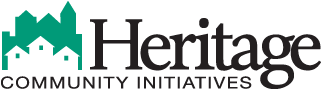Leader in early learning and out of school time programs investing in children, teachers and the future
PITTSBURGH – Heritage Community Initiatives has provided highly accredited early learning and out of school time programs to thousands of at-risk students in eastern Allegheny County for over 25 years. For the upcoming school year, Heritage is embarking on a new approach to education, bolstering workforce development and operations to ensure a steady pipeline of qualified and dedicated teachers and continue to provide access to quality education. This innovative framework is designed to tackle systemic challenges in the sector, such as teacher retention, expanding enrollment, and meeting the diverse needs of students and staff in the aftermath of the pandemic.
“We recognize the critical importance of early education and out of school time programs and are fortunate to have highly dedicated teachers, 17% of whom have been with us for a decade. However, the pandemic has had far-reaching impacts, prompting us to think differently,” stated Paula G. McWilliams, President and CEO of Heritage Community Initiatives. “To continue providing unparalleled access to top-quality academic, behavioral, and social support for our students, we must also provide additional professional development support to maintain and grow the qualifications of our teaching staff. We are taking a vocational approach and will work with every teacher to establish a career pathway by providing daily, one-on-one, in-person coaching, mentoring, support, and access to customized resources.”
Heritage has served more than 8,000 children residing in 22 communities who have benefitted through its Heritage 4 Kids Early Learning Center and Heritage Out of School Time (HOST) programs. These programs meet the highest standards for educational excellence in the Commonwealth, achieving Keystone STARS STAR 4 status for over a decade. Both Heritage school-age and early learners excel in development and learning benchmarks for their age groups: 98% of school-age children meet or exceed expectations for fine motor skills, cognitive development, and socio-emotional development, while 93% of early learners (birth to 5 years) meet or exceed expectations for physical development, mathematics, social-emotional development, cognitive development, literacy, and language.
In response to current and future needs, Heritage has created two new divisions within its Education Department: Professional and Child Development and Operations. The redesign will enable the department to focus on overall operational efficiencies, recruitment/retention efforts, enrollment, parent relations, compliance, while continuing highly successful measurement and evaluation programs with ongoing assessments and specialized plans for classrooms and students.
Heritage is focused on ensuring students’ continued progress and addressing their individual needs. Most (70%) Heritage students are from single-adult households, 35% of which have an average income of less than $30,000 annually. 92% of parents hold one or more jobs.
Heritage will further its efforts to manage the increased trauma-induced behaviors observed since the pandemic, continuing its partnership with UPMC Western Behavioral Health.
Tamara Marisco, UPMC Western Behavioral Health Director of Clinical Care Child BH Community Services, stated, “UPMC Western Behavioral Health has had the privilege of partnering with Heritage Community Initiatives since 2021. Our WBH staff join the HCI teachers and staff in the classrooms, providing daily support for the children’s academic, social-emotional, and cognitive needs.” She added, “Heritage Community Initiatives play a vital role by impacting a brighter future in the lives of the families they serve. Heritage makes a difference, and we are proud of our affiliation.”
Heritage will also establish a funnel approach to support pre-K enrollment by accommodating more infants and toddlers; more than 100 children are on the waiting list. The Heritage Out of School Time program will also be reimagined to adapt to today’s needs.
“This new strategic approach and framework demonstrate our commitment to supporting our staff and the children we serve year-round from birth through pre-K and adolescence. We want to ensure that affordable options for quality education remain within reach for area families,” Ms. McWilliams stressed.
About Heritage Community Initiatives
For over 40 years their combination of the highest-quality and respected programs in Transportation, Education and Nutrition has afforded Heritage Community Initiatives to be uniquely positioned – and privileged – to continue their long-standing mission to enhance the socioeconomic mobility of thousands of under-resourced individuals, families and children in Allegheny County. A recent study showed that the economic and societal impact of Heritage results in over $33.3 million infused into the regional economy each year.
Heritage provides highly accredited academically based early learning and out-of-school time programming for hundreds of at-risk children. Education Program families are offered the most access in the region to Early Head Start, Head Start, Pennsylvania Pre-K Counts, along with Child Care Works child care subsidies and scholarships. Heritage is the only human services nonprofit in the Commonwealth designated as a provider of public transportation. Heritage Community Transportation has provided more than 1.6 million rides at 81 stops for only a quarter. Additionally, nearly 200,000 meals are served annually by Heritage Nutrition Services, which offers solutions in meal planning, ordering, preparation, and delivery while creating healthy options for largely at-risk youth and senior populations. For more information on our services and how to get involved, visit heritageserves.org
Photography – High resolusion images are available upon request.
Heritage Community Initiatives provides highly accredited academically based early learning and out-of-school time programming for hundreds of at-risk children. The students earn high marks, meeting or exceeding learning and development benchmarks for their age groups.

